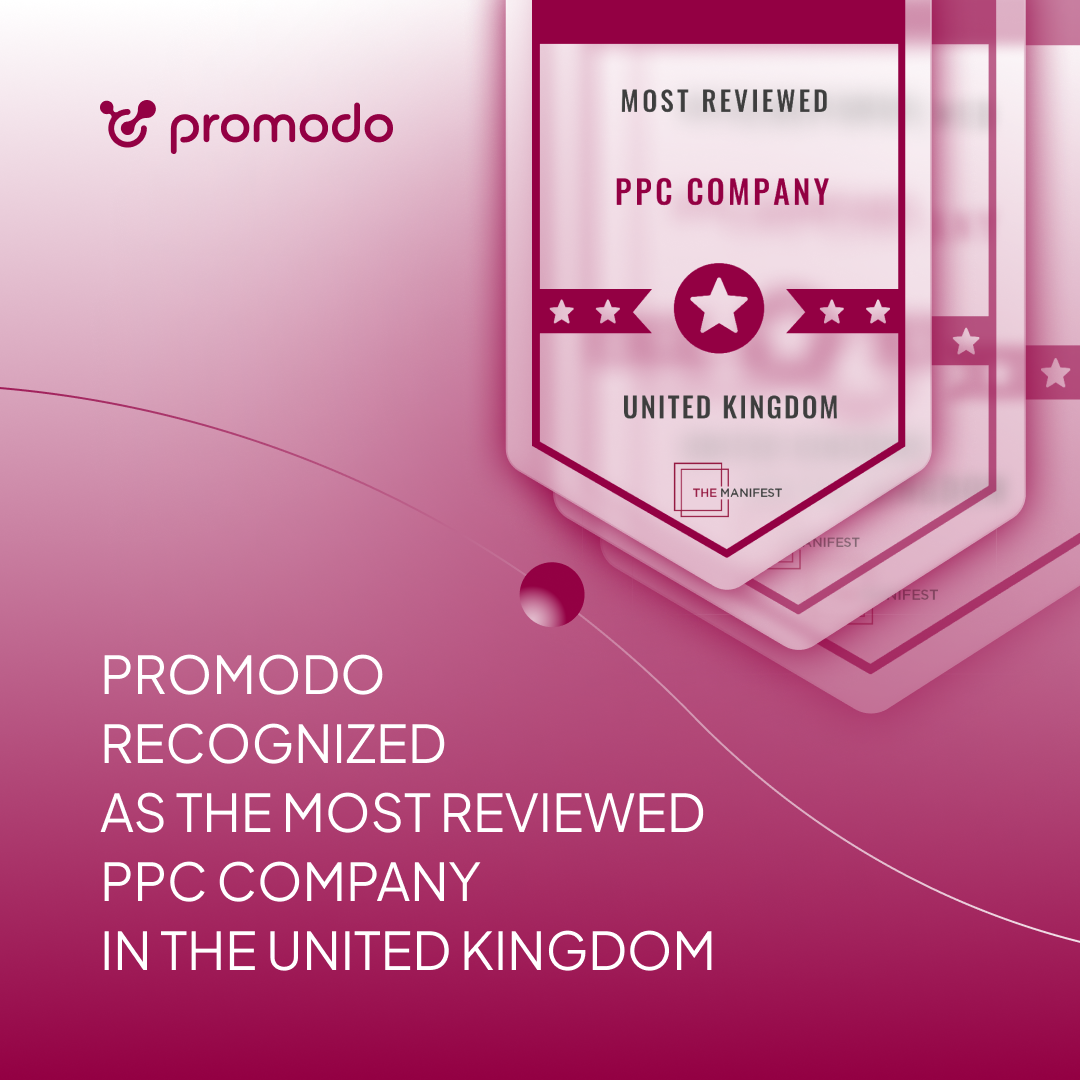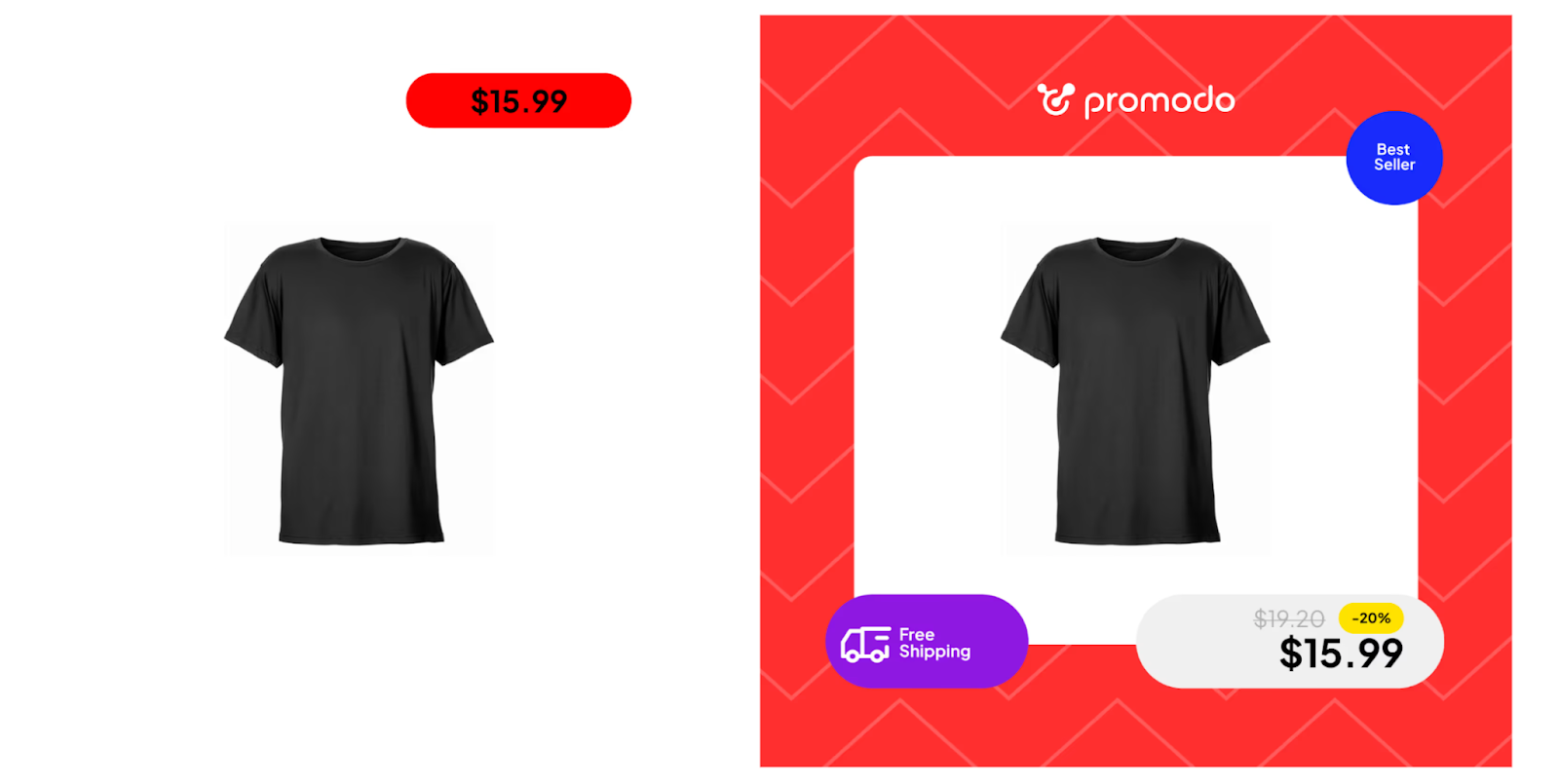Content
.png)
Managing pay‑per‑click campaigns becomes a headache as soon as your portfolio grows. When your product catalog changes daily, when you need thousands of ad groups for different regions, it’s easy to lose track of what’s working and what needs fixing. Teams end up spending most of their time reacting: updating prices, pausing out-of-stock ads, or trying to keep messaging aligned across platforms.
This kind of manual campaign management doesn’t scale. Mistakes pile up, performance drops, and resources get stretched thin.
At Promodo, we’ve spent over 20 years helping businesses manage and grow PPC accounts in highly competitive industries. And over those years, we’ve seen exactly what parts of PPC can and should be automated — and where human input still matters. This led us to create our own automation tools, built around solving real, recurring problems faced by our clients. These tools now power some of the most efficient campaigns we run.
In this article, we’ll show how each of these automation services works, why we’ve developed them, and what kind of results they deliver in practice.
One of the most time-consuming parts of PPC management is building and maintaining search campaigns for product-based businesses. When your catalog includes thousands of SKUs, each with its own pricing, attributes, and availability, it’s impossible to create relevant ad groups and keywords manually — and keep them updated.
That’s why our PPC experts created G‑MOS, Promodo’s ad automation engine. It connects directly to your product feed and uses its structure to automatically generate and update Google Ads search campaigns. Ad groups, keywords, and ad text are created based on configurable templates. And as your product data changes — prices, discounts, stock — the ads reflect those changes in near real-time.

G‑MOS continuously syncs with your feed, refreshing content and applying any changes within minutes. You can also add manual keywords where needed, without breaking the automation.
This approach is especially valuable in markets without Google Shopping, where advertisers still rely heavily on search ads to drive product visibility. G‑MOS fills that gap by building fully dynamic search campaigns based on your catalog data.
G‑MOS is a strong fit when:
We’ve used G‑MOS with clients in the automotive, travel, and electronics sectors. One automotive client needed to advertise over 3 million SKUs — and G‑MOS made it possible to generate and manage tens of thousands of highly targeted ad groups, reducing cost per click while increasing conversions. In another case, we launched over 50,000 ad groups for a transportation provider within a few hours, syncing real-time CRM data with live ads (for which we were recognised by European Search Awards).
While Performance Max campaigns offer powerful reach and automation, they’ve also made life harder for PPC teams in one key area: visibility. Unlike traditional Search or Shopping campaigns, Performance Max doesn’t make it easy to see bidding statistics, impression share, or competitive benchmarks at a glance. This kind of data used to be accessible in Smart Shopping campaigns. Now, it’s either buried or missing entirely. For teams managing multiple campaigns across categories, the lack of quick, comparable insights limits strategic decisions.
Adshub is a unique development of Promodo, a custom tool that allows you to collect all the data and metrics from Google Ads for different client requests on one clear dashboard with minimal effort and time. We have created this tool for one of our clients in the retail industry. Of course, Performance Max Google Ads is the most effective in achieving the goals of advertising campaigns, but it still loses in operational analysis and quick statistics. In order to see some metrics, you need to go to custom Google Ads reports, spend time selecting periods, campaigns, etc. Adshub helps you do everything quickly - view and monitor statistics.
Anastasiia Ilchenko
Senior PPC Specialist at Promodo
In practice, AdsHub pulls all key Google Ads data — including hidden metrics like bidding statistics — into a single dashboard. It allows users to break down reports by product category, campaign, or time period. You can track performance across periods, compare impression share, see win rates against specific competitors, and make informed decisions about budget adjustments, all in a few clicks. It turns Performance Max from a black box into something you can actually work with.

We used AdsHub in full force for our client exist.ua, one of the leading online retailers of car parts. The challenge was clear: search campaigns were effective, but couldn’t scale fast enough, and Performance Max offered reach but lacked reporting transparency. Our client needed to understand where their spend was winning, which segments were underperforming, and how aggressive their competitors were across different product groups.
Using AdsHub, we created custom reports that showed:

This allowed the team to quickly assess market saturation and investment opportunities without waiting for raw data exports or manually building pivot tables. As a result, the client could make sharper, faster decisions about where to push spend and where to hold back.
Adshub also enabled period-over-period comparisons, something that Google Ads does not support out of the box for Performance Max. For example, if our client had 74% impression share in week one and dropped to 68% the next, they could identify which competitor gained share and decide whether to adjust bids or stay the course.
In this case, we used the data to reallocate budget toward the most competitive categories, gradually increasing campaign visibility while keeping ROAS within target.
Dynamic product ads on Meta platforms are one of the most efficient ways to promote a large catalog. But they often suffer from poor visuals — plain product images with no pricing, no promo callouts, and nothing that differentiates them in a crowded feed. We discovered that that was a missed opportunity.
Feed Optimizer is Promodo’s custom image enhancement engine. It processes your product feed and automatically adds branded overlays, price tags, discount labels, and seasonal badges to your product images before they’re pushed into your Meta campaigns. This means your ads stand out more — and communicate more — without needing manual design work on every asset.
Here is what you can do with our custom Meta ads automation tool:

Everything is tied to live product data. If a price changes or a product goes on sale, the image overlay reflects that automatically. We also ensure that the visuals remain legible and well-placed across Meta’s different placements, from feed to carousel to stories.

In practice, this small visual improvement creates measurable results. For example, when we used Feed Optimizer for a large electronics retailer, we increased return on ad spend by 19% and improved conversion rate by 34%. The creative stayed on-brand, reflected the latest offers, and required no extra work from the client’s design team.
This tool is ideal for e-commerce businesses with dynamic pricing and large catalogs, especially those running Meta dynamic product ads. It gives you creative control, keeps your product cards up-to-date, and lifts performance without increasing media spend.

These automation tools — G‑MOS, AdsHub, and Feed Optimizer — have become key components of many of our most successful PPC campaigns.
We’ve used them to manage millions of products in search campaigns, automate route-specific ads for transport companies, and push dynamic creatives that respond to real-time feed updates. The results aren’t just anecdotal: our work has been recognized at the European Search Awards, Clutch, the Manifest and others. We are official Google and Meta partners and we strive to outperform ourselves every year.
More importantly, we are proud that systems help clients focus less on repetitive campaign work and more on strategy, testing, and growth. Automation doesn’t replace the marketer — it gives them better tools to do more impactful work.
When PPC starts feeling like firefighting it’s usually a sign that you’ve outgrown your current setup.
At Promodo, we’ve built tools that solve specific, high-impact problems in PPC: from search campaign generation with G‑MOS, to cross-platform coordination with AdsHub, to visual feed enhancements with Feed Optimizer.
If you're facing scale issues, or if your PPC feels stuck, we're ready to help figure out what to automate — and how to do it without losing control.
You may also like
Choose quality and trusted services to improve the presence of your company on the Internet, and feel free to contact our UK team if you have any questions.

Are your PPC campaigns delivering the results you desire, or is there room for improvement?

With a conversion rate of 2.6% in healthcare domain, paid search ads surpass display and social media ads.

Usually, we do not pay attention to the general dynamics of the e-commerce market development.
.png)
SEO for orthodontists isn’t just about ranking on Google — it’s about making sure the right people find you at the right time.
We at Promodo are ready to help you improve your performance across all digital marketing channels.
Get started
